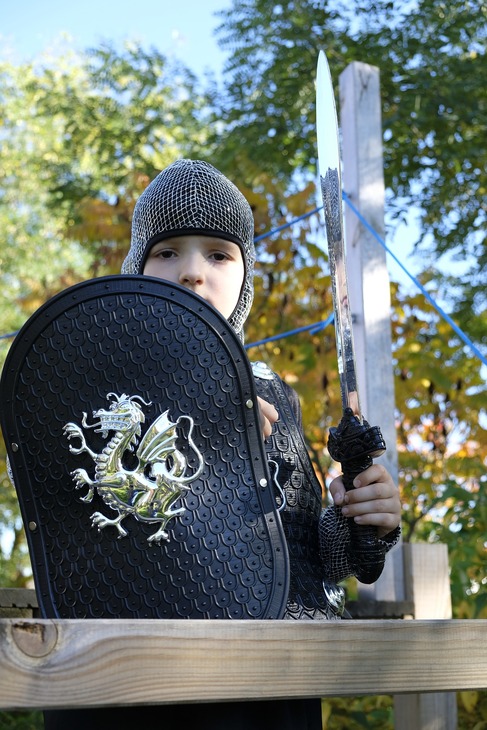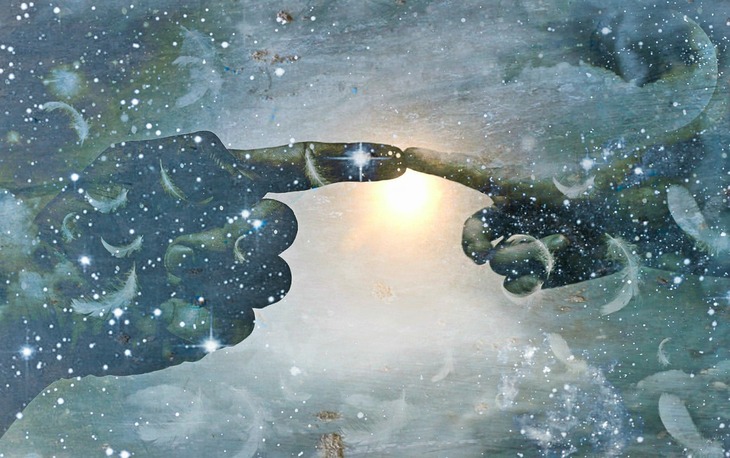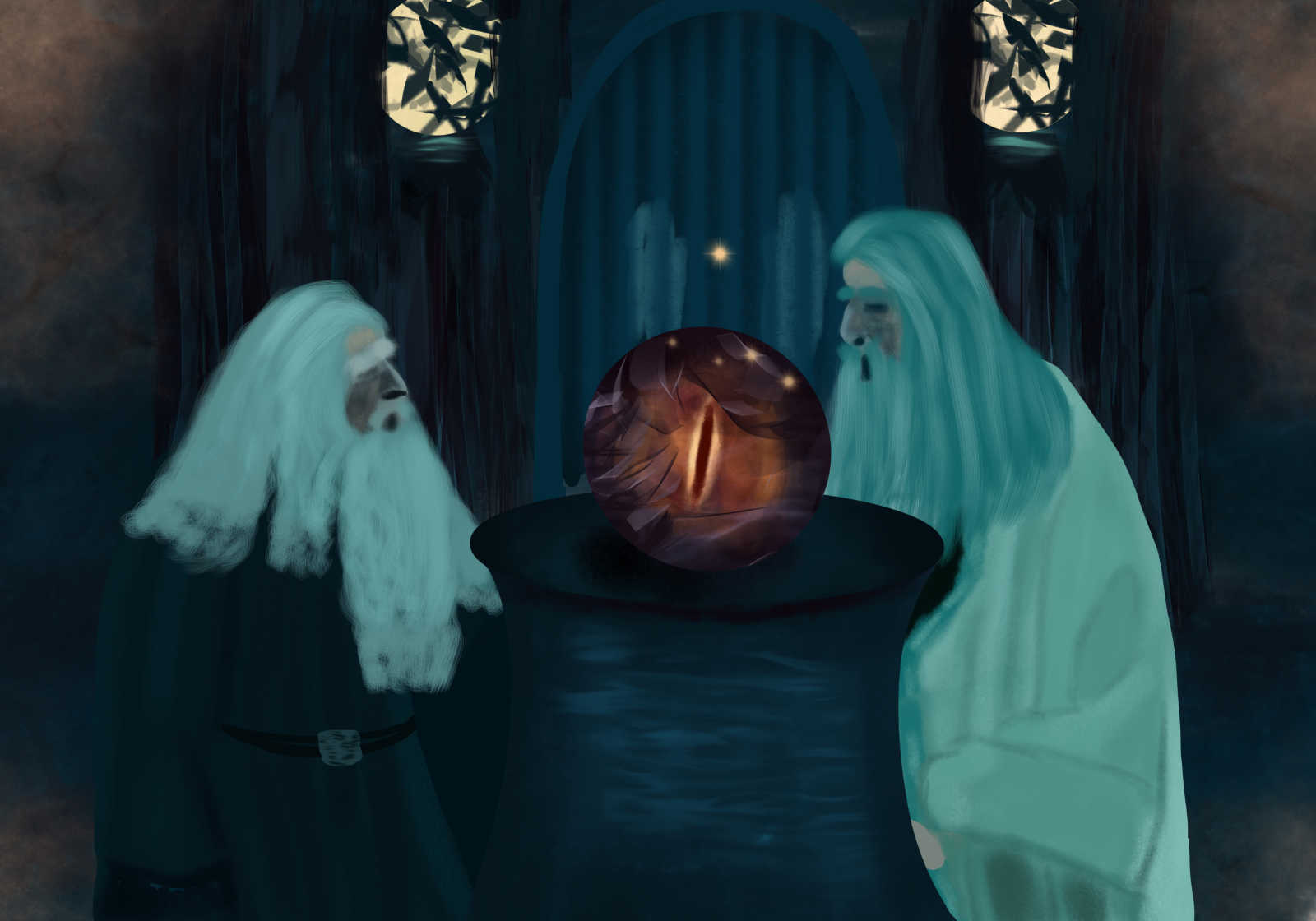Osgiliath is taken. It has fallen into the hands of the Orcs. Gondor’s defenses are lost. There are no barriers left that hinder the enemy from advancing across the fields of Pelennor. Minas Tirith is left to fend for itself, as best it can.
The enemy’s plan
While the soldiers of Minas Tirith are gathering their strength and courage to face a still unknown quantity of malice heading their way, the Witch-King gazes at the Citadel eager to accomplish his greatest task.
Witch-King: “Send forth all legions. Do not stop the attack until the city is taken. Slay them all.”
Gothmog: “What of the wizard?”
Witch-King: “I will break him.”
The Orcs have a healthy amount of fear-induced respect toward Gandalf the White. They have gotten a small taste of his powers as he drove the Nazgûl back with a single move of his staff. They cannot be sure what other powers he might use against them.
This fear, unknown to Gandalf and the soldiers of Minas Tirith, gives Gondor a slight advantage. However, the Witch-King himself is more than ready to face the wizard head-on. The Witch-King is sure to be able to destroy Gandalf.
A long wait for aid
While the most lethal weapon in the enemy’s arsenal is preparing his legions to attack the only free Kingdom of Middle-Earth left, Gandalf stands side by side with the soldiers of Minas Tirith with their eyes focused on Osgiliath. Gandalf fears his own fate, he fears what may come for him.
Soldier #1: “Where are Théoden’s riders?”
Soldier #2: “Will Rohan’s army come? Mithrandir?”
Gandalf: “Courage is the best defense that you have now.”
With the lighting of the beacons, the expectation of an outside aid rises with every passing second. The question of the whereabouts of the Rohirrim is a legitimate one. As help had been officially requested, an army should be mobilized and heading toward Minas Tirith.
The gathering of an army, however, takes time, time that Gondor is rapidly running out of. Even if they knew about the assembling of all able-bodied men at Dunharrow, there is nothing for them to do but wait. The hope of an army galloping to their aid is all they have left. They must rely on themselves and their own strength and courage.
A question of worth
The atmosphere in the Hall of the Kings is as tense as the one on the outer walls of the Citadel, but for a very different reason.
What were you thinking, Peregrin Took? What service can a Hobbit offer such a great lord of Men?
Pippin
Talking to himself in the silence of the great hall, Pippin contemplates his true worth among the race of Men. In his mind, there is nothing that he could offer that could even compare to the greatness of Men.
Pippin judges himself too harshly against this lord of Men. The fact that he is a “mere” Hobbit does not in any way give Denethor moral supremacy over him. Pippin views Denethor as a great lord of Man-based solely on his title and ambition to hold the throne for himself, which in itself is no qualitative basis. It is simply a statement of fact.
To judge Denethor on his effectiveness of rule and concern for his own people, or his own son for that matter, diminishes him as a human being.
The worth of a person or its “greatness” is not measured in acquired titles and societal positions. The characteristics and value a person possesses are the only possible criteria against which a person’s grandeur may be measured.
A lack of integrity, the strength of character, and a strong differentiation of good and evil leave even the highest-ranked officials hollow shells. Without any of this, a person is only defined by its title – an artificially produced hierarchical position devoid of all meaning.
Not entirely satisfied with his self-presentation so far, Pippin doubts his own self-worth in the context of his new surroundings.
A great deed
It was well done. A generous deed should not be checked with cold counsel. You are to join the tower guard.
Faramir
Faramir encourages Pippin to see his deed for what it is, as noble, generous, self-sacrificing. In a sense, he has become an intricate part of Gondor’s defenses. He, together with the soldiers of Minas Tirith, will be putting his life at stake to give the world of Men a chance in battle. No matter what a person’s physical size might be, it may not concur with one’s abilities and the courage of his heart.
Faramir’s childhood imagination
Pippin: “I didn’t think they would find any livery that would fit me.”
Faramir: “Once belonged to a young boy of the city. A very foolish one who wasted many hours slaying dragons instead of attending to his studies.”
A fine insight into Faramir’s childhood. Instead of preparing himself for the outer world through education, Faramir indulged his fantasies. He seized every opportunity to live his inner world in his reality as a child.
The fantastical life and imagination of a child is an important developmental concept. It forms the child’s ability to create new ideas and concepts without the need to actually see or sense the things it imagines. The feeling that these concepts provoke in a child becomes the source of creativity and resourcefulness.
If, for example, a child imagines fighting dragons in order to save himself and protect his people, then he would find different ways of doing so. It wouldn’t be an interesting image if all the dragons were slain in a minute, or in the same way. The child expands its horizons with effective and fun ways to overcome an obstacle. This, in turn, leads to more creative thinking processes, ones that others may not be able to see.
If Denethor had blocked Faramir’s imagination by forcing him to attend to his educational duties, he would have stunted his imaginative world and made him a realist. Denethor would have mingled with his son’s intellectual growth. To only follow that which is ordered by a man of higher rank, is to be unable to think creatively and find solutions yourself.
In Faramir’s example, however, his need to prove himself to his father, to earn his acceptance and love had made him a follower, and an eager one at that. He neglected that resourceful part of himself to be the son his father wants him to be, to mirror Boromir.

A joke at one’s own expense
Pippin: “This was yours?”
Faramir: “Yes, it was mine. My father had it made for me.”
Pippin: “Well… I’m taller than you were then. Though I’m not likely to grow anymore, except sideways.”
Pippin appears honored to wear a livery made for the Captain of Gondor. Although only externally, this outfit makes him feel a bit more important in the grand scheme of things, in a way that he might belong in the world of Men. Faramir is welcoming enough for Pippin to feel a bit more comfortable than he did.
Pippin jokes about his height and eventual weight gain, which in this solemn atmosphere in the Hall of the Kings sounds almost unfamiliar. Any lively feeling of joy or laughter had long since abandoned this great hall, only grief and sorrow can be felt inside these walls.
To joke at his own expense and to do it while a war is brewing just outside the city walls, is a very welcoming ability of Pippin. Although aware of the gravity of the situation, he still uses a small opportunity to keep the fear at bay, if only for a brief moment.
A different kind of strength
Faramir: “Never fitted me either. Boromir was always the soldier. They were so alike, he and my father. Proud. Stubborn even. But strong.”
Pippin: “I think you have strength of a different kind. And one day your father will see it.”
The final piece of the puzzle. Denethor and Boromir were very much alike, not only in stature but in their thinking as well. Faramir presents himself as being worlds apart from his brother. To say that Boromir was the soldier implies that Faramir was never really keen on it, or had the stature of a soldier. This tells me that he sees himself in the right light.
Unlike Boromir, who struggled to reconcile his characteristics as a strong man and a soldier with his weaknesses, thereby unable to define himself as anything but what his father saw in him, Faramir knows who he is. He knows his worth and his capabilities.
His inability to be the strong man that Denethor claims Boromir to have been, is not a weakness or a flaw. It just points to the fact that Faramir is a different type of person. One that is more sensitive and understanding of the plight of others. Although in his need to please his father, he might see himself as not as strong as he should be, Pippin points out to different layers of strength. Physical strength does not prove someone’s strength of character, and without taking the Ring for himself, Faramir has demonstrated his greatest virtue.
Pippin’s compliment to Faramir brings a weak smile upon his face, making an impact on him, giving him hope that his father might one day truly see and appreciate him.
Read what happens next in my next post.
Photo by Michael Anthony Ingram on Pixabay





